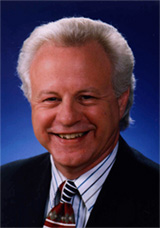Multi-tasking, focus, and other stuff
By Dave Kahle
 I just had a conversation with a sales manager at my last seminar. The gist of it is this: he has so many competing responsibilities; it is difficult to spend time with his sales team. Sound familiar? It should. I have heard that idea expressed countless times by executives, sales managers and sales people. In one way or another, sales professionals find themselves increasingly occupied by trivial tasks at the expense of the important ones. Effective sales time management is the greatest challenge facing sales professionals in this turbulent economy.
I just had a conversation with a sales manager at my last seminar. The gist of it is this: he has so many competing responsibilities; it is difficult to spend time with his sales team. Sound familiar? It should. I have heard that idea expressed countless times by executives, sales managers and sales people. In one way or another, sales professionals find themselves increasingly occupied by trivial tasks at the expense of the important ones. Effective sales time management is the greatest challenge facing sales professionals in this turbulent economy.
It is an epidemic that is raging unabated in our economy. It renders people unproductive, and organizations operating at a fraction of their potential. It often comes from what I call “other stuff.” Over the years, I have seen this phenomenon to be so pervasive that years ago I labeled it and gave it its own acronym: OSE. That stands for “Other Stuff Expansion.”
The rule is this: When you give a proactive sales person “other stuff” to do, the other stuff will always expand, taking more in time and energy than you anticipated, and rendering the proactive sales efforts to an unacceptable smaller part of the person’s labors.
Here’s how this looks in practice. A branch manager needs someone to fill in a couple of hours a day for a customer service person who has taken a maternity leave. “The salesman can do it,” the branch manager thinks in a flash of inspiration. “He’s got time.”
Presto. The problem is solved.
But, alas, the couple of hours a day turn into a half day, and sometimes more, as the sales person gets caught up in reacting to the inbound calls. Those proactive sales calls that should have been made in that time are never made. The silent costs of that decision and the inevitable “Other Stuff Expansion” begin to be felt months down the road.
Or, you have a sales manager check out that promising new product line, or write that new procedure because he/she “understands that,” and, of course, you’re too busy.
Or, you have inside sales people who also answer the phone and respond to inbound calls, and you are constantly frustrated that they don’t make enough outbound calls.
The example can go on and on. A quick perusal of your sales efforts will unearth dozens, I’m sure.
There’s a simple explanation for this. Making proactive sales calls is a high risk effort that requires initiative, motivation and self-discipline. In other words, it’s hard to do. That’s one of the reasons why most people aren’t sales people. On the other hand, taking care of “other stuff” is usually low-risk, easier and somewhat fulfilling. And, it keeps you busy.
That’s why, “When you give a proactive sales person “other stuff” to do, the other stuff will always expand, taking more in time and energy than you anticipated, and rendering the proactive sales efforts to an unacceptable smaller part of the person’s labors.” It’s the law of OSE.
In a bigger picture, OSE for sales personnel is just the specific application of a deeper rule. That rule is this: When you give someone something to do, you are, by that act, preventing him/her from doing something else. Or, to be more personal, when we accept the responsibility for doing something, we, by that action, eliminate the possibility of our doing something else.
What sounds blatantly obvious is open reflection, so often violated that it has become one of the major productivity killers, and one of the most common mistakes made today by managers and self-managers of all kinds.
Here are two solutions:
a. If you have given, or are tempted to give, anyone who has proactive sales responsibilities, other things to do – don’t! There is always a greater cost than meets the eye. If you are a salesperson who has other stuff to do, try to hand it back to your manager or pass it on to someone else.
Be very careful about giving responsibilities, or accepting responsibilities, that detract from your core focus. In today’s hectic, multi-tasking world, it is more powerful to say “no” than it is to say “yes.”
b. OK, you can’t do that. For whatever reason, your sales personnel must also do other stuff. Plan B. Keep the division between the two sets of competing responsibilities as clean and sharp as you can. So, the other stuff should be well defined, have clear guidelines for completion, and be limited to a specific period of time.
So, for example, don’t say this: “John, we want you to do this other stuff.” Instead say, “John, I’d like you to spend ½ day every other week doing this other stuff.”
By keeping the divisions clear between the competing responsibilities, you limit the damage done by other stuff expansion.
In the long run, it’s those organizations and individuals who focus on the core tasks and don’t diffuse their efforts who succeed.
Dave Kahle has trained tens of thousands of B2B sales people and sales managers to be more effective in the 21st Century economy. He’s authored nine books, and presented in 47 states and eight countries. His latest book, Eleven Secrets of Time Management has just been released.











